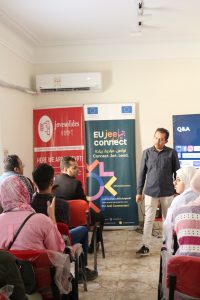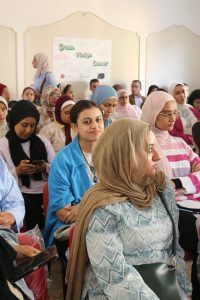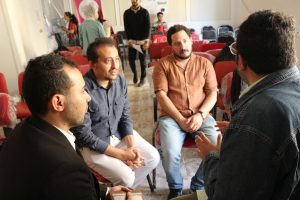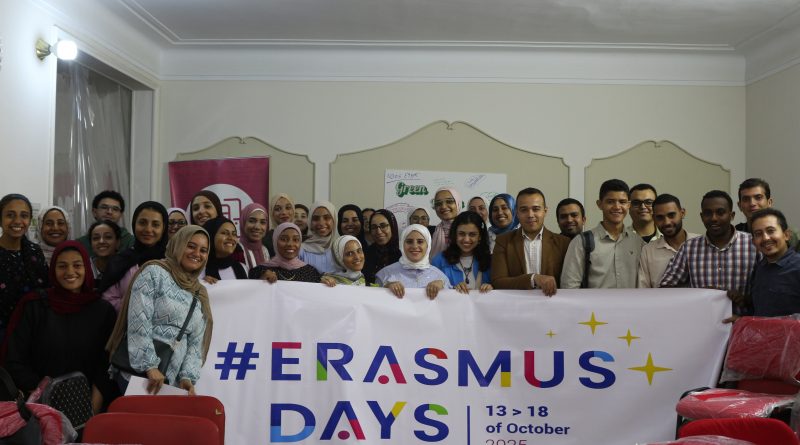MULTIPLIER EVENT – JOVESOLIDES EGYPT
As part of the Youth for Peace in the Mediterranean Sea project, Jovesolides Egypt held its national Multiplier Event on 17 October 2025, coinciding with the Erasmus Days 2025 celebrations. The activity took place at the organisation’s headquarters in Cairo, bringing together young people, youth workers, institutional representatives, and community leaders to showcase and promote the project’s results and its broader contribution to peace education in the Mediterranean region.

The event opened with registration and a welcoming speech introducing Jovesolides Egypt’s role in the Youth for Peace partnership and the project’s main objectives promoting intercultural dialogue, social inclusion, and youth engagement across Mediterranean countries. A detailed presentation followed, highlighting the project’s journey over two years: from youth exchanges and local workshops to the creation of the Manual, eBook of Participatory Proposals, and other educational materials.
Participants explored how these outputs could serve as practical tools to promote peace, empathy, and non-violent communication in their communities.

Interactive Workshop and Reflection
The heart of the day was an interactive reflection session using one of the project’s educational tools developed to encourage self-reflection on peace and conflict resolution. Participants, divided into small groups, discussed how to adapt the project’s approaches to local youth work contexts.
This exercise sparked powerful exchanges between young participants and decision-makers, helping to bridge the gap between institutional actors and grassroots youth initiatives.
Networking and Stakeholder Engagement
Later in the day, a networking session gathered key representatives from Egyptian and regional institutions, including Mr. Mina Fangari from the Anna Lindh Foundation and Mr. Ahmed Yassin, national coordinator for the EU Jeel Connect programme. Their presence underlined the strong link between local youth work and Euro-Mediterranean cooperation frameworks.
Stakeholders discussed how to embed the project’s tools in ongoing national and regional programmes. Participants also identified concrete follow-up actions — such as integrating the Manual into youth worker training, using the project videos in community education, and promoting local peer-learning circles on peacebuilding.

Participants and Diversity
The event welcomed 56 participants in total 37 women and 19 men, all between 18 and 30 years old. The group included Egyptian and Sudanese youth, youth workers, civil society members, university students, and NGO representatives. Their engagement reflected the project’s inclusive and cross-cultural mission.
Feedback and Evaluation
Feedback collected throughout the event was overwhelmingly positive. Participants praised the practicality of the Manual and valued the opportunity to connect with other peace-driven youth initiatives. Many emphasised their commitment to continue using the project materials in their organisations and to explore new collaborations under the Erasmus+ Programme.
Erasmus+ Visibility
The Erasmus+ identity was visible throughout the event from banners, roll-ups, and certificates to presentations and social media coverage. Facilitators also explained the Erasmus+ Programme’s objectives, ensuring participants understood how the project fits within the EU’s broader strategy for youth empowerment and international cooperation.

